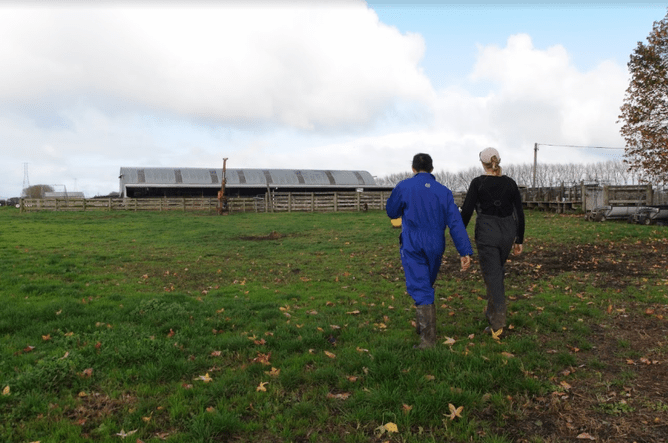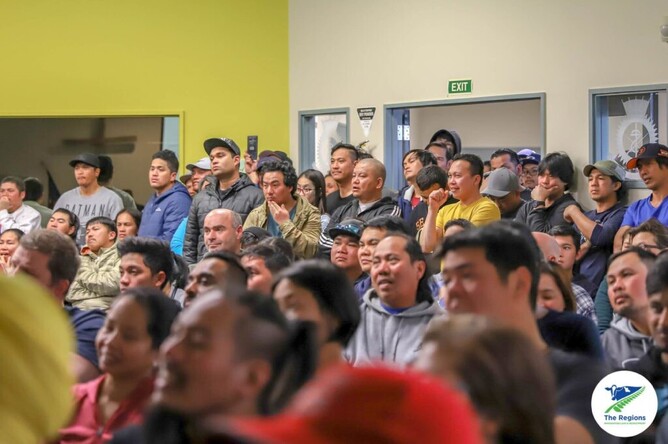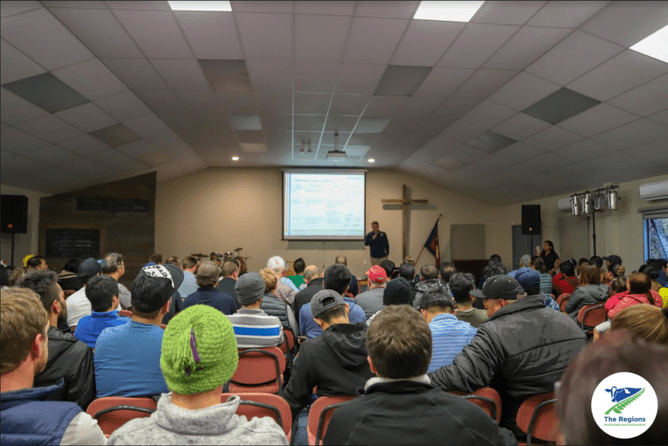Like much of the agricultural sector, The Regions has patiently waited for more than half of 2019 to hear from Minister of Immigration, Iain Lees-Galloway, on his reformed immigration settings. The Regions managing director, Ben De’Ath, ponders the plight of policy reform.
Last year The Regions submitted a petition to Government containing 7,500 signatures from the dairy sector, strongly advocating for the proposed Stand Down policy to be revoked. If passed, this policy would see low skilled work visa holders stood down after three consecutive years on a one-year work visa. A policy our team at The Regions couldn’t comprehend given the severe labour shortage in New Zealand’s agricultural sector.
Less than two weeks after we stood on the steps of Parliament, supported by Barbara Kuriger MP and Chris Lewis of Federated Farmers, Minister Lees-Galloway opened the stand down policy for public and stakeholder consultation – a satisfying result for us and all who contributed to the petition.wever, eight months on our initial satisfaction has all but dissolved, as we are yet to hear any update from Minister Lees-Galloway on the outcome of the public consultation period. The rural sector, communities, farmers and migrant families once again face uncertainty as they are left in the dark.
Unchanged policy
We commend the Government’s decision to open the proposed policy change for public consultation, but now, over half a year later, immigration settings remain largely unchanged.he market truths remain the same: the agricultural industry is growing, rural towns need families to help maintain communities, and farmers need skilled, loyal, hardworking, long-term staff. In many corners of the nation, shared anxieties and uncertainties heighten by the day, as those most impacted by the settings are left waiting.
To this end, I now wonder: will we be left in limbo until 2020 and election year to see policies released? Will our rural families and communities be caught in a political game?
Regional New Zealand left in the cold
All responses and conversations from the Government have indicated they understand, and perhaps even feel, some of regional New Zealand’s pain around human capacity, historically low unemployment, urbanisation and staffing shortages. Yet here we are, still waiting for the cancellation of the stand down, and the repeal of the hurtful term “low skilled” for many of our nation’s dairy workers.
If, as the signs suggest, the Red team implement policy that meets the needs of regional New Zealand – people who generally vote for the blue team – it may lead to a decision to announce the policy at a time when election collateral can be capitalised on. But where does that leave regional New Zealand in the meantime?
The recent New Zealand National Fieldays® was a clear indicator of the severe labour shortage we have here in New Zealand. The Regions team were in attendance and this year, more than any other year, we received numerous enquiries for support from sectors outside of the agriculture industry. If this isn’t an indication that we need New Zealand immigration policies to change, I don’t know what is!
When will sector needs be met?
I can’t imagine a business in the private sector being able to keep its doors open if it faced the same flaws that are contained in our agricultural industry’s immigration policy settings. Nor is it feasible that those doors could remain open for a further eight months after acknowledging significant system flaws.
The Red team would be quite within their rights to try and attain votes from Blue voters at the next election but, should this come at the expense of our rural towns, communities and families? Absolutely not! They are already bearing the brunt of archaic immigration policies and category classifications, which continue to name these work visa holders as low skilled, when they are anything but.
It is now calving season and while members of our Government debate a range of issues in their warm chambers, spurred on by heated discussions on education, low-emission vehicles, the bailing out of airports and fair pay agreements (all of which certainly require attention), our farming communities crunch through frosty fields to check on their cattle.
Their focus is on surviving these hard winter months and ensuring calving season is a success, not just for their bottom line but for New Zealand’s exports and agricultural industry. Yet, at the back of their mind, they are wondering what on earth is happening with immigration policy and when it might meet the needs of the sector they dedicate their life too.
I sure hope they are not caught in a political waiting game.


